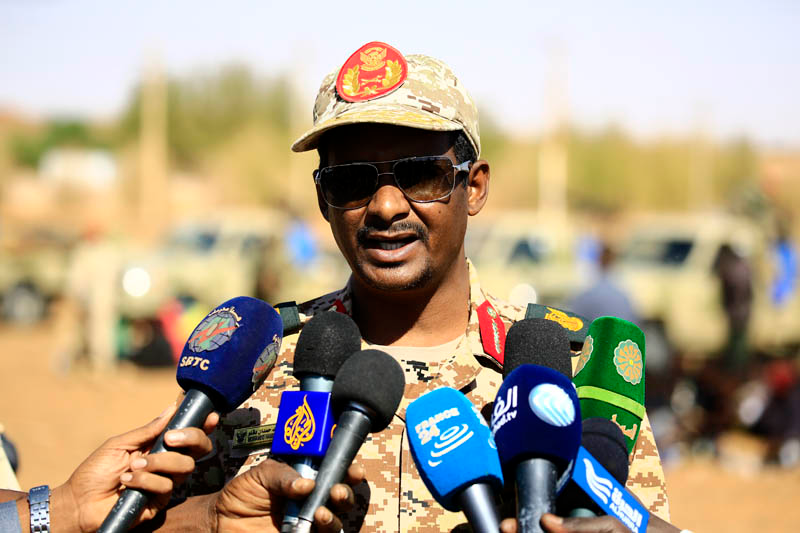The leaders of the rebel movements that signed the Juba Peace Agreement warned of the dire consequences of the slow implementation of the security arrangements mapped out in the agreement. Some called for the quick formation of a unified armed force whilst the head of Sudan’s Rapid Support Forces (RSF) recently rejected this plan.
The rebel movements attributed the slow pace to the “absence of political will” and not to the practical material factors, whilst the armed forces justified the slow implementation by explaining that they the lack the required budgets.
Lt Gen Suleiman Sandal, the Political Secretary of the Justice and Equality Movement (JEM), said that the slow implementation of the security arrangements is intentional.
He explained that the military reforms stipulated by the Juba Peace Agreement require a change of the leadership of the armed forces in conjunction with the security arrangements. Sandal stated that the current general command of the army does not reflect the country’s diversity and indicated that no positive step was taken in the past seven months to implement the promised arrangements.
"Everyone who stands against the security arrangements is against the revolution and must fall"Sandal called for real reform in the armed forces and said that “everyone who stands against the security arrangements is against the revolution and must fall”.
He also said that the talk about the lack of funding was “ashes for the eyes” (nonsense).
Lt Gen Jaber Mohamed Hasaballah from the Sudan Liberation Movement (SLM) also criticised the Sudanese government for not having implemented several aspects of the peace agreement, especially the security arrangements, despite the fact that eight months have passed since its signing.
During a speech in Khartoum, he said that the slow arrangements led to security chaos in areas that are still recovering from war and previous conflicts.
Deputy Chairman of the Sudan People’s Liberation Movement (SPLM), Yassir Arman, said that the country cannot bear the presence of multiple armed forces and warned of a complete collapse if a singular unified armed force is not formed. He accused the leaders of the armed forces of not wanting structural reforms.
Similar to Sandal, Arman said that the slow implementation of the security arrangements is not due to a lack of funds but because of political issues. He explained that the army is heavily politicised and includes a large number of employees of the Islamic Movement and the National Congress.
Arman, therefore, called for the necessity of building the army away from politics and with greater diversity.
He further noted that there is a problem between the current Sudan Armed Forces (SAF) under the command of Lt Gen Abdelfattah El Burhan, also Chairman of Sudan’s Sovereignty Council, and the RSF* under the leadership of Mohamed Hamdan ‘Hemeti’ Dagalo, also Deputy Chairman of the Sovereignty Council.
Arman said that the groups of the former regime are seeking to erupt a war between the two parties if a single army is not formed in time.
Hemeti’s refusal
Two days ago, Sudanese news outlets reported that Hemeti publicly rejected the integration of his Rapid Support Forces into the SAF, thereby challenging plans to merge the various armed forces under a unified command.
Several news reports indicate a deterioration of Hemeti’s relationship with El Burhan, who is also Commander-in-Chief of the SAF. Both sides dismissed the allegations.
UNITAMS warning
Last month, Head of the United Nations Integrated Transition Assistance Mission in Sudan (UNITAMS) Volker Perthes warned that the delays in establishing key representative bodies and implementing security arrangements according to the Juba Peace Agreement were threatening Sudan’s stability.
He stressed that the delays in establishing a joint protection force, along with the absence of integrated security forces, “directly affect stability and the protection of civilians in Sudan”.

